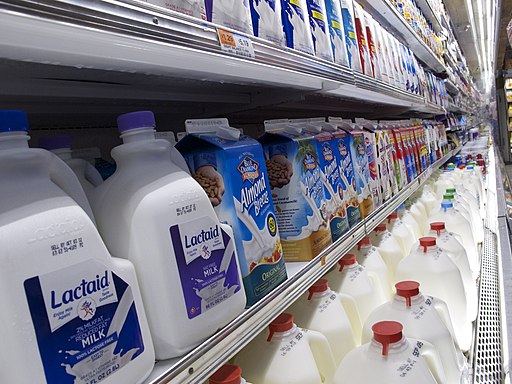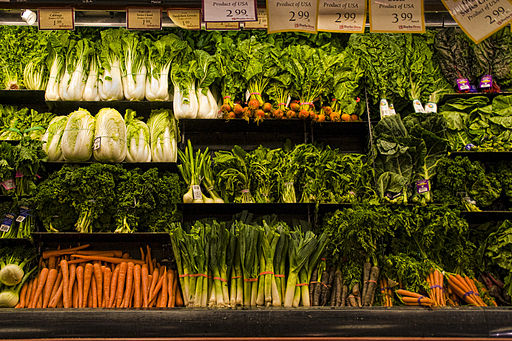"I'm so excited! I just spent $78 on groceries this week AND earned enough to save $30 in gas," I excitedly told the parents and grandparents waiting with me.
"How do you do that? I spend $250 a week on our family of 5," one mom said.
"I spend $250 a week and it's just the two of us!" a grandmother added.
"Uh...we eat a lot of chicken," I clumsily responded. Really, I was just trying to internally figure out HOW someone could spend $250 a week on groceries.
 Yesterday I stopped by a friend's house and the same conversation came up. Her grocery budget is $500 a month, but she regularly finds herself spending $650. She has separate budgets for paper products/household and eating out, so the grocery money is truly just spent on groceries. I tried to give her some ideas, but it's hard with kids running around and tangent after tangent entering our conversation. I think I started somewhere with "we eat a lot of chicken."
Yesterday I stopped by a friend's house and the same conversation came up. Her grocery budget is $500 a month, but she regularly finds herself spending $650. She has separate budgets for paper products/household and eating out, so the grocery money is truly just spent on groceries. I tried to give her some ideas, but it's hard with kids running around and tangent after tangent entering our conversation. I think I started somewhere with "we eat a lot of chicken."Now that I have a chance to sit and think, I thought I'd come up with a list of how to keep the budget under control.
- Have a Plan, but be flexible.
- Go into the grocery store with a list. If you are short on time, then stick to the list. Do not be tempted by the delicious looking Wavy Lays.
- If you are not short on time, go up and down the aisles looking at discontinued and sale items you may have missed in the flyer. I've been fortunate to notice some great deals on soup for my husband's lunch last week. Unfortunately they are discontinued so I hope he doesn't like them too much! This week I noticed pre-packaged snacks on sale for $3.99 (normally $6.49). This didn't really phase me, as I usually just buy bigger bags and pre-pack myself. However, there was a $1 coupon on each pack. This made each snack pack only 25 cents (a good value in my opinion). We rarely buy these, but they make for a quick grab for snack time at school.
- Don't Buy Junk (all the time).
- A little hypocritical considering my last post about snacks, but I don't regularly buy chips, soda, cookies, candy, or ice cream for the kids to eat at home. We drink milk or water, and occasionally juice or lemonade. The fridge is always stocked with fruit, yogurt, cheese and veggies. (We do buy goldfish crackers in bulk). I will occasionally bake cookies or muffins for a yummy treat but when I hear "I'm hungry," the children are directed first to fruit.
- Only Buy Items On Sale at a Good Price.
- This is a huge tip. Of course there are exceptions, since milk is unlikely to go on sale, and sometimes store brand cheese will be cheaper than name brand on sale. You'll want to learn (maybe keep track in a notebook) what good prices are, and stock up (see below) when you know it's a good sale. But don't allow yourself to buy 5 boxes of Red Beans & Rice simply because you want them. If you must have it, buy one box, and wait until they are on sale to stock up. Also pay attention to what the sale is. A savings of 20 cents on a $5 item isn't really that great.
- Plan Your Meals Around What You Have and What's On Sale.
- Every Saturday or Sunday I will look at the weekly flier, take inventory of my freezer, and decide what we are having that week. If chicken breasts are on sale for $1.99, I know this is a good week to stock up and make some freezer meals. Likewise, if nothing good is on sale, it's a good time to pull out some of those freezer meals.
- When money is extra tight, try eating only what you have and get creative with it! A couple I know ate for a month and a half just out of their pantry! Of course milk, eggs, and fruit/vegetables (unless you have canned) will need added to this, but think of the savings if that is all you are buying!
- Keep It Simple.
- A simple marinade can be made with a bottle of italian dressing. $2 of chicken plus $1 marinade, plus $1 for a rice side and $1 for veggies makes a meal of $5. A recipe which requires you to buy 10 new ingredients may be nice for special occasions, but very expensive for daily use. Most of the recipes on this site are simple and inexpensive. I like simple.
- Know Good Prices and Where to Buy Them.
- I think I already said this, but let's reitterate. Take butter for example. I remember when butter was $2 a pound all the time! Now, I think the store brand runs $3.50 regular price. I know that if I ever see butter for less than $2.50 a pound that it is a good buy and to stock up.
- Milk at the small fruit market across the street is 50 cents a gallon cheaper than the grocery store we normally shop at. They have other items that are less expensive as well. And many items that are more expensive (that I don't buy there!).
- Be sure to account for gas when price comparing. I walk to the small market across the street. Even though the potatoes I needed for dinner might cost 50 cents more at the small market, it would cost me 1.80 in gas (8 miles there and 8 miles back) to drive to the grocery store and back. Paying more for the local market saves in this case!
- Finally, don't forget about that kale you have growing in your garden exponentially or the farmer's stand down the street.
- Stock Up Only When You Know It Will Be Eaten.
- Per above, butter is something that we will use before it goes bad. Cheese as well. However, stocking up on something that you aren't certain you will use, will result in stuff getting thrown away once its out of date.
- Use Your Freezer.
- When you see a good deal on meats, buy and freeze. I find it best to put all my ingredients in a bag first so that all I have to do is thaw and cook/bake the meal. I've also made casserole type meals in disposable metal tins. I find the best prices on these at a paper supply company instead of a grocery store. I also stock up on store-made stromboli when it is buy one get one free.
- Check the coupon fliers/online ads/swagbucks/store promotions.
- I have friends that are extreme couponers. They make off with amazing stashes of deodorant, pet food, and side items that they pay next to nothing for. I'm impressed, but it is not my forte'. I check the coupons each week, and only cut out those items I normally buy. For example, saving $1 on Frozen Yogurt when you don't normally buy it, means you are actually spending $3 more than you would've in the first place. This means I cut very few coupons, since most coupons are for processed items I try to avoid. However, it is also great when I can save an extra couple of dollars at the end of my order because of clipped coupons.
- Try to Shop Alone.
- Today I took the whole family shopping. We stuck to the list. Really, all we needed was milk and black trash bags. My teen asked for Oreo minis to pack in her lunch this week. Not something I normally buy, but they were on sale for $1.99 so I allowed it. We also got her some sandwich food. My husband wanted to buy artisan hamburger buns for dinner this week. I was planning to bake them myself, but laziness got the best of me and I agreed. He also wanted to buy bacon to put on our burgers. We buy only nitrate free bacon so I hesitated due to the cost, but agreed because I figured I could use some of the pack for another meal, too. As we were checking out I noticed the bacon rang up at the wrong price. I notice this kind of thing all the time. Our grocery store used to have a great policy where if the item rang up incorrectly, you got it free. I got a lot of free stuff this way. Now, if it rings up incorrectly, you get the item at the correct price. Ha! That's how it should have been in the first place. I left the children and husband continuing to check out while I ran back to double check and take a photo of the shelf tag. I was right and the cashier adjusted the price. When we got home I unpacked the groceries. Somehow I missed a 2 liter of soda (see my second point) and a 5.99 pack of premium cheese. I just laughed. Hubby knew I'd say 'no' so he snuck them through the check out when I wasn't looking. It also explains while our small order cost more than I thought!





Your total sounds about right and we have the same amount of people in our families. We spend about 100.00 a week on groceries if we are light on paper products, spices or any of those bulk staples that tend to run out about once a month or so. On a regular just replenishing week, we can get that down to about 65-70 dollars. We use our freezer big time (our upright) and we also cut the garbage out, our biggest expenditure is produce, we stock up on fruits and veggies regularly. I am cutting out all bread out of our diet next year, not religiously when we go to restaurants or other houses...etc. but in our home. The kids are loving lettuce wraps and tortilla wraps, and same for burgers our only exception would be brat nights ;) We are too close to Wisconsin to let those nights skip us by! Hahaha!
ReplyDelete